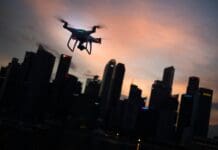This post is also available in:
 עברית (Hebrew)
עברית (Hebrew)
Along the huge advantages of big data as a source of efficient, real-time insights for the benefit of commercial and security sector applications, this technology can also be used to police a population. Chinese authorities are allegedly building and deploying a predictive policing program based on big data analysis in Xinjiang. Human Rights Watch said the program aggregates data about people – often without their knowledge – and flags those it deems potentially threatening to officials. Some of those targeted are detained and sent to extralegal “political education centers” where they are held indefinitely without charge or trial, and can be subject to abuse, says hrw.org.
Basing on publicly available government procurement documents, media reports and interviews, the Human Rights Watch assembled details of the policing program called the “Integrated Joint Operations Platform” (IJOP) in Xinjiang, a sprawling area in northwest China that security officials say harbors separatist and religious extremist elements.
Unidentified sources inside Xinjiang described to Human Rights Watch the computer and mobile app interfaces of the IJOP software that tracks almost all citizens of the Turkic-speaking Muslim Uighur ethnic minority and stores detailed information including their travel history, prayer habits, the number of books in their possession, banking and health records.
Procurement notices show that the IJOP also deploys license plate tracking and facial-recognition cameras to follow people in real time and provide “predictive warnings” about impending crime, Human Rights Watch said, according to time.com.
The organization’s report reveals for the first time that the disparate data collection efforts appear to be unified under one central digital database that calculates citizens’ political risk.
Use of the integrated computer system has led to people being detained and sent to political indoctrination centers, the organization said, citing interviewees who were kept anonymous out of concern for their safety.
Evidence was reportedly found that Chinese police are building similar big-data tracking capabilities in other parts of the country under a program called the “police cloud,” but do not deploy them to as such an extent as in Xinjiang.


























